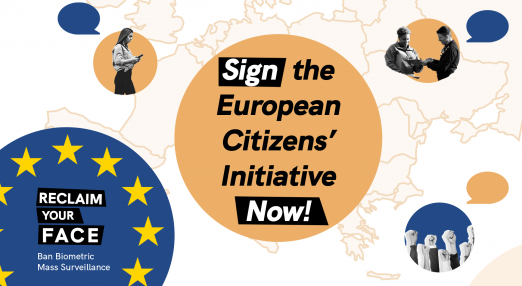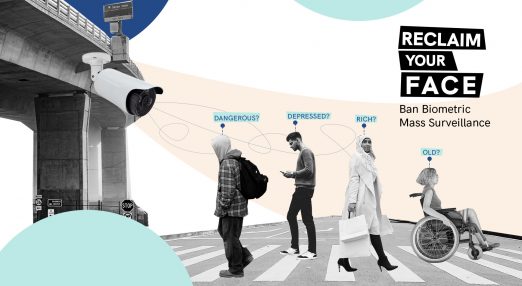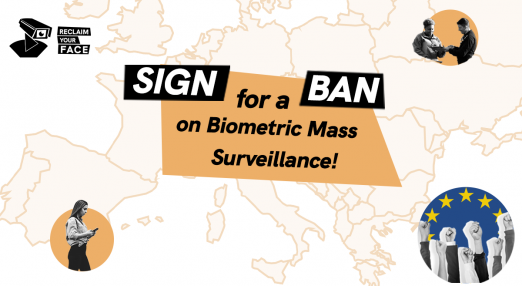Secret negotiations about Europol: the big rule of law scandal
In negotiations held behind closed doors, the Council of Member States and the European Parliament are about to torpedo all the efforts of the European data protection watchdog’s to hold Europol accountable for its illegal data practices.
Filter resources
-

Secret negotiations about Europol: the big rule of law scandal
In negotiations held behind closed doors, the Council of Member States and the European Parliament are about to torpedo all the efforts of the European data protection watchdog’s to hold Europol accountable for its illegal data practices.
Read more
-

Hide and Seek: Polish DPA agrees that people should be able to access their advertising profiles, but there’s no way to do so
Following EDRi member Panoptykon’s General Data Protection Regulation (GDPR) complaint against one of the biggest Polish news website, Interia.pl - the Polish Data Protection Authority has confirmed that online publishers should give users access to their advertising profiles generated for the purposes of delivering behavioural ads.
Read more
-

Managed by Bots: surveillance of gig-economy workers
WIE’s recent ‘Managed by Bots’ report demonstrates that opaque algorithms dictate almost every aspect of gig economy employees’ work, offering them limited visibility or avenues for redress when a decision is made about them.
Read more
-

UN Special Rapporteurs challenge EU’s counter-terrorism plans
Through their communication, the Special Rapporteurs demonstrate how several existing and foreseen EU security measures fail to meet the principles of legality, necessity and proportionality, enshrined in European and international laws (such as the Regulation on preventing the dissemination of Terrorism Content Online and the processing by Europol of sensitive data for profiling purposes). The fatal flaw lies in the use of broad and undefined terms to justify extensive interferences in human rights.
Read more
-

Digital Dignity Document Pool
Digital technologies can have a profound effect on our societies, but sufficient attention is rarely given to how certain applications differentiate between, target and experiment on communities at the margins. This document pool gathers resources for those that are interested in learning about and contesting the harms to dignity and equality that arise from uses of technology and data.
Read more
-

Electronic Frontier Norway (EFN) reports “Shinigami Eyes” to the Norwegian DPA for violation of GDPR
EDRi member Electronic Frontier Norway (EFN) found that the use of the program “Shinigami Eyes” and the operation of the database it uses constitute multiple violations of the GDPR and its Norwegian implementation. The most egregious of these being the clear violation of Article 9 which prohibits the registrations of people’s political views, philosophical convictions and physical persons sexual relations or sexual orientations etc.
Read more
-

CJEU upholds strict requirements for law enforcement access to electronic communications metadata
Traffic and location data may allow precise conclusions to be drawn about the persons involved, e.g. their social relationships or the social environments frequented by them. In most cases, the CJEU has only allowed access to such data for serious crimes. However, the CJEU ruled that access to retained data is only allowed in cases of serious crime when the access implies a serious interference, and in all criminal cases when the access does not imply a serious interference.
Read more
-

Booklet: Surveillance-based advertising: An industry broken by design and by default
Most online advertising today relies on huge amounts of personal data extracted from people without their knowledge. EDRi’s new guide book “Targeted Online” sheds light on this opaque data industry and explores how EU law should regulate it. This is the first blog post in a new series dedicated to the EU’s proposed Digital Services Act and Digital Markets Act.
Read more
-

ECI: putting people’s voices before corporate greed
On 17 February 2021, EDRi with a coalition of 40 human rights and social justice groups launched a unique, officially-recognised EU petition, called a “European Citizens’ Initiative” (ECI). Here, we explain why and how this ECI is a powerful tool for our Reclaim Your Face campaign that aims to ban biometric mass surveillance, as well as for our wider European advocacy against harmful uses of artificial intelligence-based technologies.
Read more
-

Mass facial recognition is the apparatus of police states and must be regulated
Scientists have shown the inherent structural discrimination embedded in biometric systems. Facial analysis algorithms consistently judge black faces to be angrier and more threatening than white faces. We also know that biometric systems are designed with a purportedly “neutral” face and body in mind, which can exclude people with disabilities and anybody that does not conform to an arbitrary norm.
Read more
-

New ECI calls Europeans to stand together for a future free from harmful biometric mass surveillance
The Reclaim Your Face coalition launches a European Citizens’ Initiative (ECI) today to ban biometric mass surveillance. The ECI represents the voice of those who oppose a dystopian future and instead want a future in which choices are made by us, not by algorithms. The initiative needs to collect 1 million signatures in at least 7 EU countries during the next year.
Read more
-

We want more than “symbolic” gestures in response to discriminatory algorithms
In an escalating scandal over child benefits, over 26.000 families were wrongly accused of fraud by the Dutch tax authority. Families were forced to repay tens of thousands of euros, resulting in unemployment, divorces, and families losing their homes. EDRi member Bits of Freedom reveals the discriminatory algorithms used by the authority and urges the government to ban their use and develop legislation on Artificial Intelligence.
Read more
